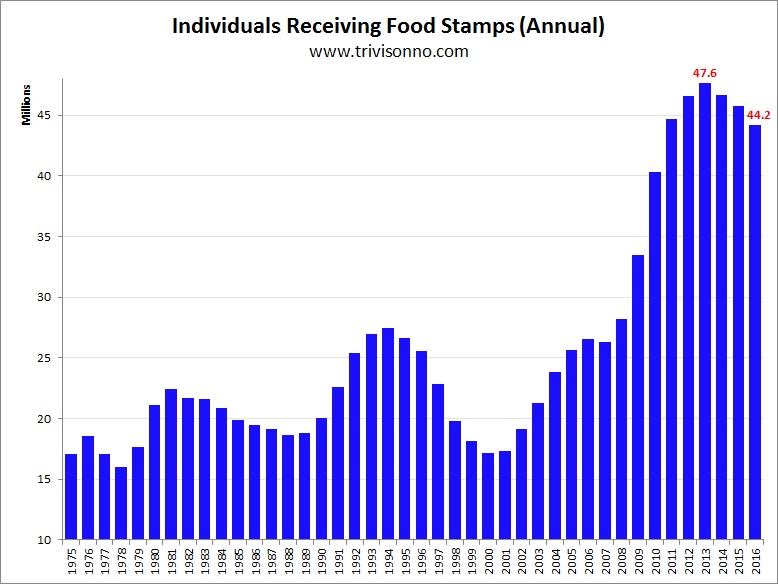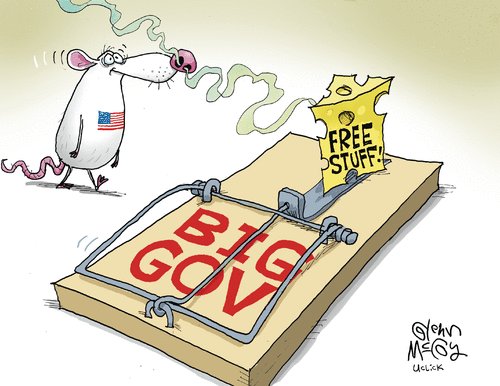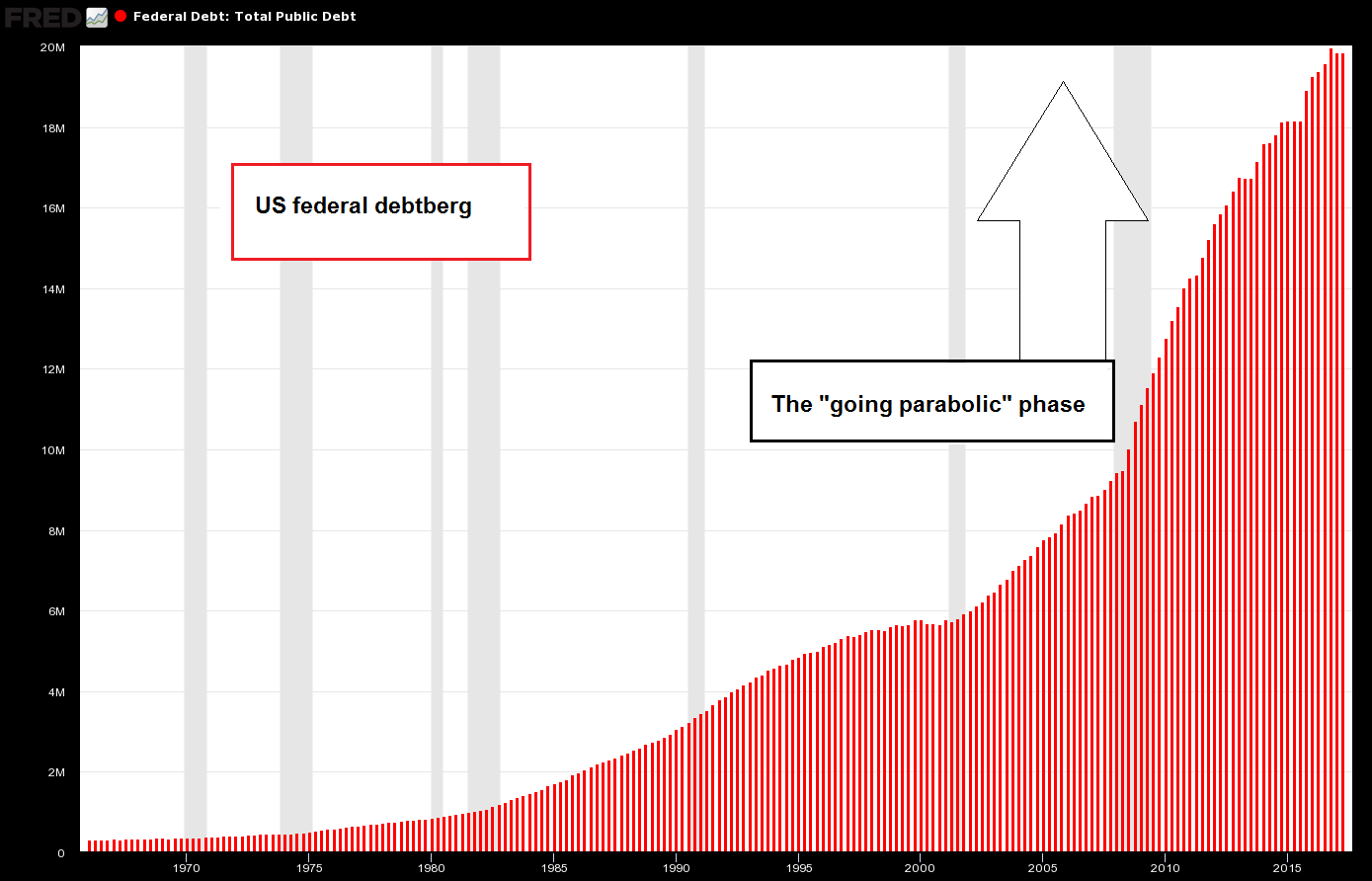Standing In Your Way Governments across the planet will go to any length to meddle in the lives and private affairs of their citizens. This is what our experiences and observations have shown. What gives? For one, politicians have an aversion to freedom and liberty. They want to control your behavior, choices, and decisions. What’s more, they want to use your money to do so. As this by now famous cartoon implies, the State is essentially a gang of criminals waving a flag. - Click to enlarge We realize that most people have a far more romantic and naïve view of the nature of the State. Some have even swallowed the propaganda slogan asserting that ”we” are the State (hint: no, “we” are not). The misguided
Topics:
MN Gordon considers the following as important: Debt and the Fallacies of Paper Money, Featured, newsletter, On Economy, On Politics
This could be interesting, too:
Nachrichten Ticker - www.finanzen.ch writes Die Performance der Kryptowährungen in KW 9: Das hat sich bei Bitcoin, Ether & Co. getan
Nachrichten Ticker - www.finanzen.ch writes Wer verbirgt sich hinter der Ethereum-Technologie?
Martin Hartmann writes Eine Analyse nach den Lehren von Milton Friedman
Marc Chandler writes March 2025 Monthly
Standing In Your WayGovernments across the planet will go to any length to meddle in the lives and private affairs of their citizens. This is what our experiences and observations have shown. What gives? For one, politicians have an aversion to freedom and liberty. They want to control your behavior, choices, and decisions. What’s more, they want to use your money to do so. |
 As this by now famous cartoon implies, the State is essentially a gang of criminals waving a flag. - Click to enlarge We realize that most people have a far more romantic and naïve view of the nature of the State. Some have even swallowed the propaganda slogan asserting that ”we” are the State (hint: no, “we” are not). The misguided belief that it can be reformed if only the right people come to power (you just have to elect them!) is as widespread as is the erroneous notion that it is a “necessary evil” that protects us from the imminent outbreak of uncontrollable chaos its absence would provoke. Think of the children! States were originally established when gangs of thieving, raping and murdering marauders realized that killing their victims after a raid was actually not the most economic decision; it was far better to enslave them by instituting a protection racket. Essentially the deal went: you let us rule over you and pay us protection money, and in exchange we will protect you against all those gangs of marauders out there greedily eying your possessions, including ourselves. This basic structure of the State has never changed, but it has of course become a lot more sophisticated. This increased sophistication has made the State more tolerable to the average serf, but that is not its main aim – rather the aim is to ensure its survival. |
| Here in the United States, bureaucrats, flush with authority, will stand in the way of a fellow who’s striving to find his own way by his own means. Licenses, permits, fees, employer identification numbers, state board of equalization registrations, workers compensation insurance… you name it. All this – and more – is needed prior to hanging out your shingle and making your first sale.
Many cities in the land of the free require school kids to get a permit just to operate a lemonade stand. And don’t even think of opening an auto shop, let alone a medical practice. You’ll spend your first year’s profits getting your hazardous materials business plan approved by the fire department. What a waste of time and resources so you can store a couple tanks of oil and gas and keep a couple waste drums to put the dirty rags in. Does all this rigmarole make you safer? After that, your time will be spent keeping up the requisite documentation and reporting. Actually acquiring and serving customers will be secondary. Then, after paying federal, state, and local taxes, you’ll be left with less money than if you’d just kept your day job. Why bother with the risk if there’s no reward? |
 The US once was a beacon of economic freedom in the world, routinely ranked close to the top. - Click to enlarge That has changed noticeably in recent decades. In many ways the US still compares favorably to Europe, where the regulatory burden has been multiplied by the addition of yet another layer of bureaucracy in Brussels. To be fair, we should interpose here that the EU was initially actually a positive force in many respects, as it tore down obstacles to free trade and competition in numerous member states. Alas, as every bureaucracy, it soon began to seek ways to grow and arrogate ever more power to itself. Eventually the eurocracy became positively punch-drunk with power. As an example, it was decided that its tasks should inter alia include “saving the planet”, a bizarre, hubristic notion that has become a fount of cronyism and regulatory insanity without peer. We know the regulatory State costs the US economy nearly $2 trillion every year, or 30% of the average household income (we have discussed this in previous articles on the “10,000 Commandments” report); in Europe the costs is very likely even higher. With respect to licensing regulations, we would note that they are advertised to the public as an integral part of the State’s protection racket: licensing is allegedly needed to “protect” consumers (who are evidently considered too stupid to make informed choices in the marketplace). In reality, it mainly serves to protect already established businesses against competition from upstarts while concurrently providing additional revenues to the State and a raison d’être to its armies of bureaucrats. It should be obvious that the effect on consumers is the exact opposite of what it is supposed to be. |
Perpetuating MistakesCertainly, some government programs were initiated with well-meaning intentions. Food stamps, for instance, are issued so people can buy food so they can eat. Isn’t that a good thing? On surface, the answer is yes. But below the surface unintended consequences simmer. By making more and more people dependent on the government for their daily bread, the government is, in effect, crippling them. The assistance, in many cases, does more harm than good. It completely snuffs out a person’s aspirations. Some may even put their ingenuity to the task of gaming the system. |
Individuals Receiving Food Stamps, 1975 - 2017 Annual food stamp usage in the US since 1975. Consider for a moment that since 2016, the official unemployment rate was and remains near the lowest levels of the entire post-WW2 era. - Click to enlarge And yet, food stamp usage has merely declined from 47.6 million persons (the highest level in history) to 44.2 million persons as of last year. Something obviously doesn’t compute here. |
| You see, nothing demoralizes a person like being dependent upon the benevolence of the state. Yet once someone has slipped onto the receiving end of its disbursements, breaking free is exceedingly difficult. To do so, a dependent must go from being comfortably poor to being uncomfortably poor.
“Give a man a fish and you feed him for a day; teach a man to fish and you feed him for a lifetime,” as the saying goes [ed. note: as is often the case, the origin of this highly perceptive proverb is a bone of contention; you can read all about it here]. Politicians, unfortunately, have missed the wisdom of this axiom entirely. Instead, like most of their plans, they’ve set up programs that make people indefinitely reliant. Moreover, they don’t give a lick that their schemes are giant money sucks with few redeeming qualities. Up and down, in and out of the economy these programs go. Entire industries, like defense contractors, are fully dependent upon the government’s cheese. Other promised transfer payments, like social security and Medicare, are fully entrenched into the fabric of society. This is why it’s impossible to cut the federal budget, even if many of these programs are mistakes. It doesn’t matter if the nation can afford them or not. Politically, these mistakes cannot be undone. They must be perpetuated. |
|
Lessons from SquantoOver the last decade the federal debt has increased from $9 trillion to over $20 trillion. That’s more than double in just 10 years. Where has this debt based money gone? Where has it been spent? A good part of it has been frittered away paying for social transfer payment programs. An abundance of it has collected in and around Washington and Wall Street. Whatever else, the Pentagon has pumped out to its preferred contractors. What will happen when the federal government tacks on another $11 trillion over the next decade? What if they double the debt again, taking it to $40 trillion? We don’t know, exactly. But there’s a good chance we’ll all find out. In the meantime, one thing is certain. A day of reckoning always arrives at the worst possible time. But, in this case, the approaching day of reckoning will be especially difficult. The federal government’s balance sheet has been larded up with massive amounts of debt. This debt is needed to fund programs that several generations of Americans have become wholly reliant upon. These people expect that these programs will support them until the day they die. |
US Federal Debt, 1970 - 2017 |
| What will happen when the debt charade breaks down and these dependents are cutoff from their expected payments? What sort of madness will prevail when half the populace realizes in unison that they’ve been snookered?
Indeed, there will be an ugly shock and a painful adjustment. Given the scope and complexity of the impending breakdown this could go on for decades. However, those with the will and desire to pick up the pieces and make something of them will be greatly rewarded. Remember, the Pilgrims didn’t receive monthly government checks when the Mayflower first landed at Plymouth Rock. So, too, Squanto didn’t show up at the first Thanksgiving feast with a bucket of extra crispy KFC purchased using a government issued EBT card. |
Squanto shows up and tells the Pilgrims what’s what. Soon they had good reason to throw a party, which became known as Thanksgiving. Turkeys have hated Squanto ever since. |
Rather, Squanto taught the Pilgrims how to sow and fertilize native crops and trade furs with other native tribes, and they reaped the fruits of their labors for a lifetime.
The point is, the day will come when government dependent industries and recipients of government transfer payments, including FDR’s promised social security, will be abandoned. Thus, taking steps today to ensure your financial independence from the state is of grave importance.
Tags: Featured,newsletter,On Economy,On Politics



